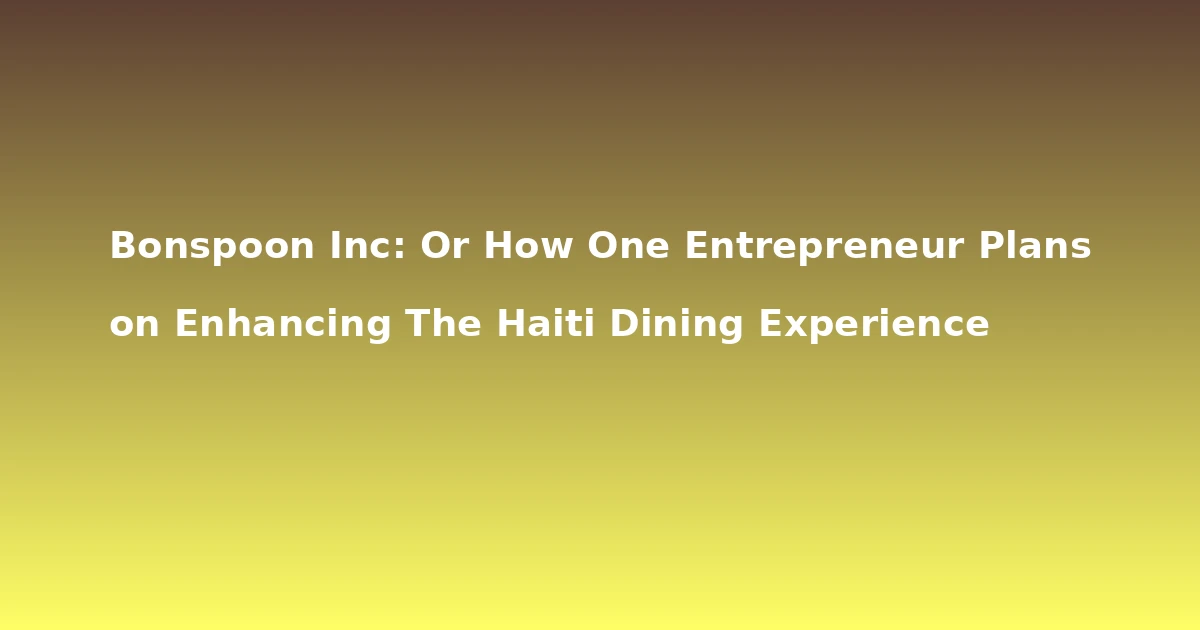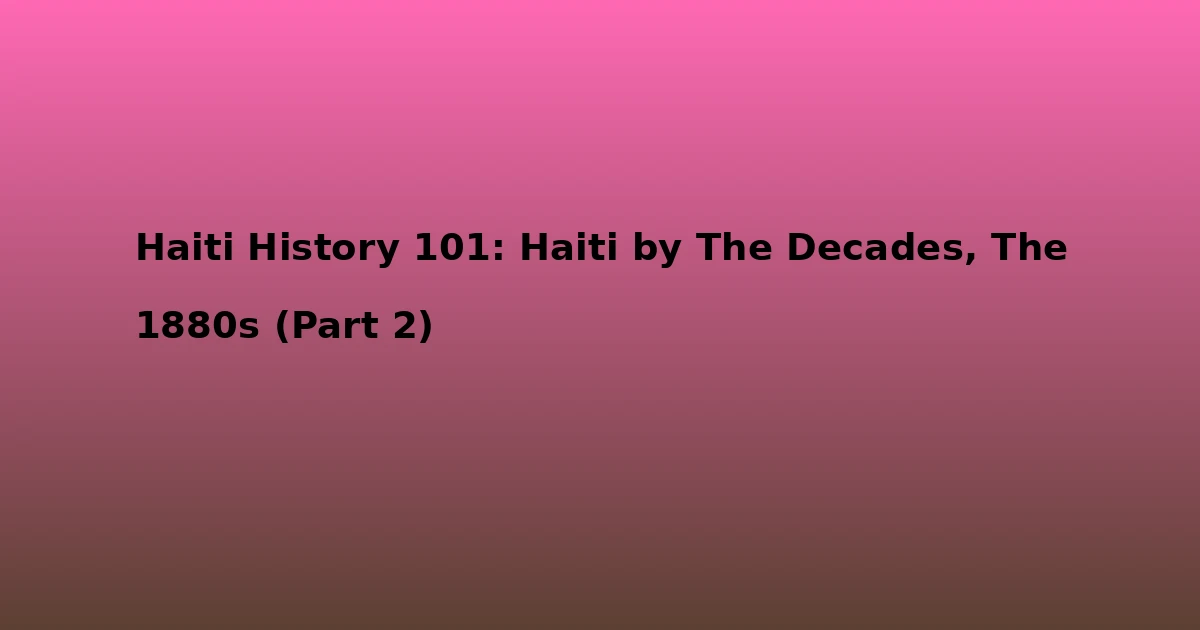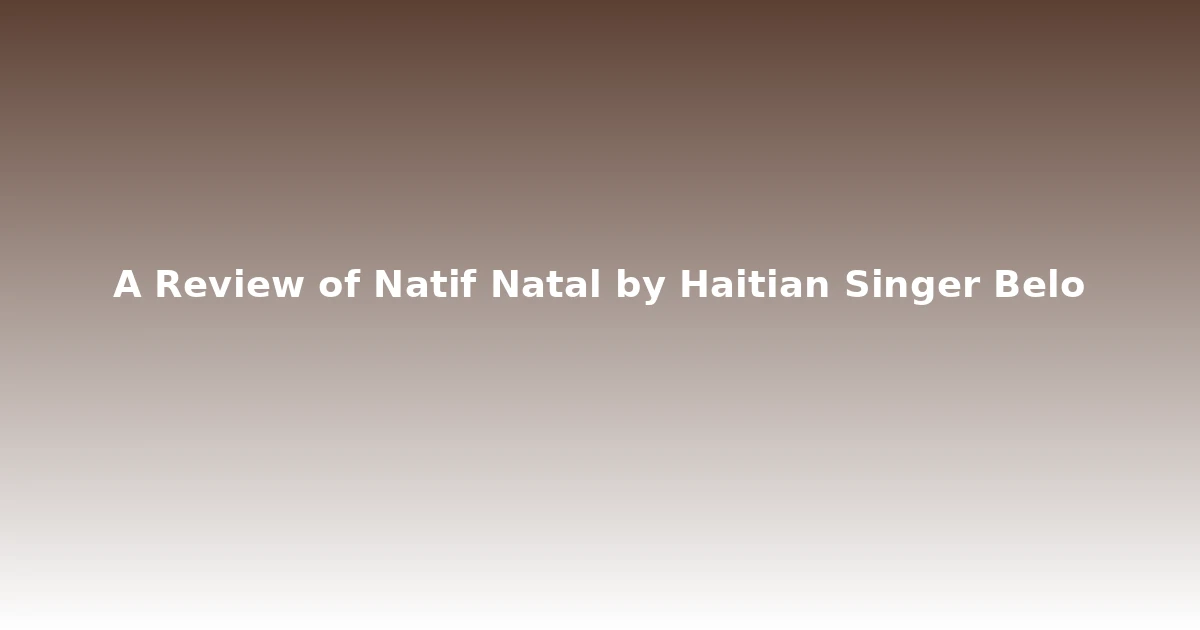If you didn’t know it, know it today: hip-hop is rather popular all over the world. Of course, Haiti is not an exception. Browse through video sharing sites like Youtube and Vimeo, and it is practically impossible to escape hip-hop artists based in Haiti.
Besides the performing artists who are part of this movement, there are other major players. Major players like Stiverne Gandhi Dorsonne, a radio personality in Haiti, who some say has been an instrumental force in the promotion of hip-hop music and the launch of the careers of dozens of artists in Haiti.
Doronne’s radio show is broadcasted on Radio Galaxie in Haiti and he can be seen on Tele Caraibes, a television station in Haiti every Saturday, with repeats on Tuesdays and Thursdays in Port-au-Prince.
“I think Gandhi is extremely intelligent,” says rapper Princess Eud, Haiti’s foremost female MC. “He always says what he’s thinking. He really loves his culture, and he always pushes Haitian music forward on whatever show he’s hosting. He helps however he can.”
Jean-Hubert Valcourt—who goes by the stage name of Dug G—shares Princess Eud’s sentiments. He chimes in: “Gandhi helps the Haitian music industry a lot. He’s given a lot of up-and-coming artists radio play on radios all over Haiti.” The rapper points out that Dorsonne not only uses his street cred to give exposure to underground rappers on the island, but is also passionate about artist rights. “Gandhi is a militant,” Dug G points out, “who’s fighting to force Parliament to vote a law that will make it a requirement for Haitian [radio] media to play Haitian music 60% as opposed to playing foreign music that’s of no use to us. I think that if the Haitian music industry had a lot more Ghandis, we would be further by now.”
Dorsonne’s radio show is as well. Although he’s widely recognized on the web as a major force in the marketing of Haiti-grown hip-hop, Dorsonne is actually a music lover. Period.
Want to know what it’s like being a radio personality in Haiti? Care to know what the Haitian music industry in Haiti works? Read on…
Q & A
As a kid, who was the first rapper whom you were drawn to?
Top Tchooko and Money Mike. There was a certain time when I wasn’t really into the rap, but what really caught my attention was how they touched on certain topics, and the way the poetry, lyrics, rhymes were delivered.
How exactly did you get into the radio industry in Haiti?
I used to play soccer a lot. I used to play in the team of the director of Radio Galaxie. Since I never liked sitting idle, during one summer vacation, I asked him if I could come by and find out how the radio works.
At the time, I was sixteen, seventeen years old. Since then, I’ve been pretty much in tune with media—radio, TV, web.
Who has influenced you as a radio host?
I used to listen to a lot of radio personalities such as BS—Bernier Sylvain Caleb Desrameaux, Carel Pedre, Joe Damas. But when I met Mike on the Mic, that made me finally reach the right path on my hosting career. To me, he is mix of all the branches of the showbiz. In full, he is an entertainer .
How did you learn the ins and outs of the industry?
Radio Galaxie is the biggest school of journalism in Haiti [Laughter], because every big host, journalist, these days used to work there, and the majority of the people who works with them used to work also at Radio Galaxie. Seriously, in reality I was really young, I was responsible for Radio Galaxie’s productions. I spent eight years on the radio as the chef in the radio’s kitchen. That is where I learned all the techniques of the the people I used to work with—especially my best friend Wandy Charles.
Is it really true what I’ve read—that if an artist doesn’t pay up, their music won’t play on the radio in Haiti?
Not really. That depends on the group or the MC. There’s some music that becomes a hit automatically without a person spending a goud.
Those who pay for airplay are usually the ones without talent. I’m not going to deny that there are some radio hosts who are ready to play music for 1,000 goud to activate their Blackberry [phone] plans, but these are special cases. Because the radio station director may not want to pay them well, so the radio personality sometimes turns the radio into a little business, in order to make a living. .
What do you intend to accomplish with your show?
Already, I’ve done so many radio shows. “Saturday’s Party,” “Kaleidovakans”, “Galanaval”, “Nostalgia”, “Hiphopapolgy”, “Hiphop Time”, “Week end Matin”, “Au Rendez-Vous Avec la Musique”. On TV: “Madigra”, “Hip-hop Nation”. All these shows were based on educating the youth on the fact that Haiti has a lot of talented artists.
Thanks to “Hip-Hop Time”, I was able to produce one of the biggest, best albums–Kilè Li Ye—records in Haiti that featured more than one hundred Haitian artists and foreign artists of all tastes. Multiple cultures.
For those of us who would like to start listening to hip-hop artists based in Haiti…who would you recommend?
This is another difficult question to answer [Laughter] because my recommendation would vary depending on who I’m facing. Anyways, I would tell him or her to hear the work I’ve done so far like Kilè Li Ye [and artists like] EnigmatiQ, Asiz, Mafia Republiq, Lib Kolabo, and then Majik Click my favorite Haitian rap group aside from Mystik 703.
Solo artist: the incomparable Abojah Da Godman andthen Dug G.
From what you can see, what are the biggest problems facing the Haitian music world?
It’s the structure. Everyone thinks they can do everything. The fan wants to be an artist, and the producer wants also to be an artist, and the artist wants to be a manager, then the manager wants to be a promoter started here we can not talk about a music industry in Haiti.
It becomes an uncontrollable mix up. They are focusing less on working hard, but [put] more focus on showing off. The mainstream artist ain’t doing a good job, because all they see in front of them is travel[ing], making more money and pretending they are the best.
How many of them created a label? Which of them have presented an upcoming group, [opened] a music school? They prefer beefing between themselves, destroying a group to form another one. Blackmailling other groups just to stay on top for decades.
What do you feel is the biggest mistake new artists emerging in Haiti commit?
I think the biggest mistake a Haitian artist can make is to believe that they’re better than everybody, thinking that they can make it by themselves and then making music only for the Haitian music market.
What do you feel is your role as a radio personality in Haiti?
In a country like Haiti where the youth has basically given up on school, they don’t read books, where they only use the internet to watch porn, trends and video clips, my mission along with all the other hosts should be education first to help this generation to guide themselves so we may accomplish what the previous hadn’t.
Do you think that rap will take konpa’s place in Haiti?
Never. The media in Haiti, and the people who have money in Haiti invest more in konpa than rap. Whether graduations, weddings, little parties in their living rooms, there’s always a need for konpa.
And why would rap take konpa’s place? I think they can be fused together, but each branch could stay in its own position. The young people that always go to a konpa concert are the same young people who go to rap concerts.
The advantage is rap is starting to gain points on konpa, as hip-hop is gaining clout with the youth. Even with the konpa music videos, if you were to mute them, you would think they were hip-hop videos. For a long time, konpa never really had an identity.
There’s never been a book written about it. After more than fifty years, it has yet to get an entry in a glossary as a musical style.
God willing, what do you have planned for your career in the future?
I’m not really sure because I’m starting to feel discouraged because of the mentality of a lot of Haitians especially those who are running things, not only that they do not appreciate values, or have a community mindset, but who are working to satisfy only their personal need. If I have to be true to myself, I give it two years to attain the goal I have set for myself or I will go for another career.
But one of my biggest dreams is to have a youth center, where the youth can relearn to have fun again and taking advice, a space where there’s no discrimination where everyone can have an opinion.
What do you think your listeners like most about you?
[Laughter] This has got to be the most difficult question I’ve ever been asked. [Laughter] Honestly, I don’t really know. [Laughter] What people think of me isn’t too important for me because Katafa—Barikad Crew—R.I.P.—once told me, “Never waste time on what people say. Just do what you got to do.” Maybe it’s because I’m a straight forward person, I take it the way it is, say it the way it is.
Regardless of what people think.
Ghandi Dorsonne can be heard online on Saturday from 10 a.m. to 1 p.m. ET on .
Last Updated on December 4, 2025 by kreyolicious



